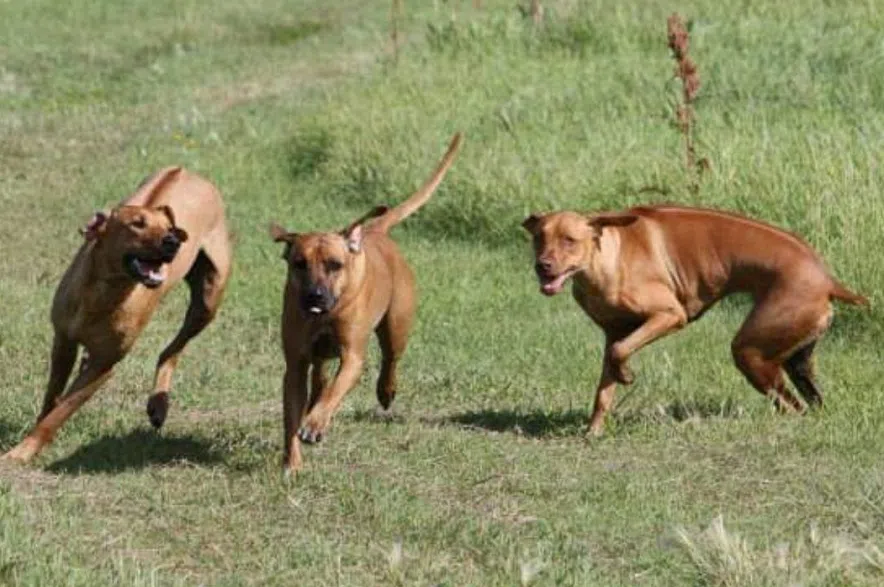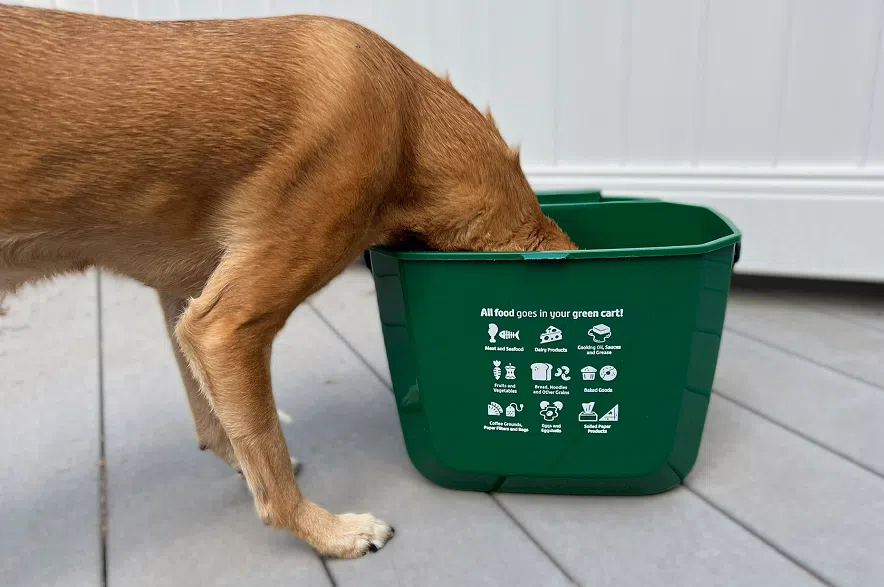When Manya Faria returned home last month, she found her kitchen compost strewn across the floor after one of her dogs had got into it.
She said about an hour later, she found Princess — her Rhodesian Ridgeback — twitching and spasming.
“It seemed to me like she could not see anything,” Faria said.
She immediately called her local vet and took Princess to the Western College of Veterinary Medicine to be kept in the ICU overnight.
Faria said she felt lucky that she had caught the situation with enough time to spare to get her dog to the vet.
“I am absolutely shocked that I did not know that compost could do this to a dog, (and) that it’s as dangerous as it is,” she said.

Dog owner Manya Faria says she’s lucky she got her dog Princess (right) to the vet in time after she got into the kitchen compost bin. (Submitted)
“You (wouldn’t) think your potato peelings, onion skins, and apple cores could do this to your dog.”
Princess has since recovered and has finished her rounds of charcoal and antibiotics prescribed by the vet.
Faria said she hopes her story can bring awareness to pet owners about the dangers of dogs getting into compost bins.
According to the Western College of Veterinary Medicine, from January of last year to March 13 of this year, there have been three cases related to dogs and compost.
Dr. Maggie Brown-Bury, a small animal veterinarian and the Newfoundland and Labrador representative for the Canadian Veterinary Medical Association, said while she doesn’t see these cases very often, she knows that animals eating certain decaying or moldy foods can cause tremors.
Some of those foods are grains like rice, pasta and bread.
READ MORE:
- City of Saskatoon says green cart usage is growing
- Bin there, done with that: residents can return unwanted green carts this fall
- ‘Absolute worst possible place’: Pilot Butte upset over proposed site of compost facility
“Within 30 minutes of digestion, the dog can be restless, panting, seem weak, be drooling (and) they might vomit,” she said, adding that tremors can develop and become very severe and potentially lead to seizures.
She said other neurological effects such as dilated pupils can be another symptom.
She noted that a compost that is well cared for doesn’t contain many mycotoxins, but when compost sits for a long time, it can become quite moldy.
Brown-Bury explained that a timely intervention is crucial in those situations. She added that getting a pet to the emergency clinic and having the animal decontaminated is the best option.
If you’re not close to an emergency clinic and see your pet get into the compost, she suggests contacting your local vet or the Animal Poison Control line for help.











